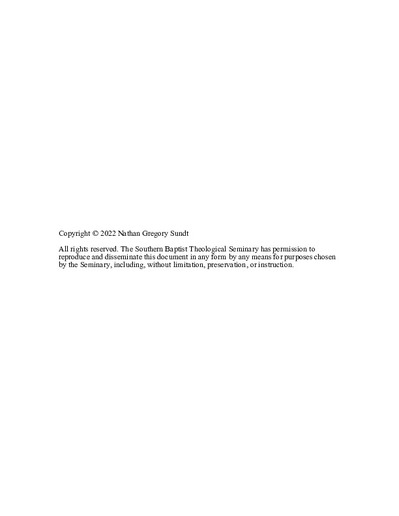| dc.description.abstract | Contemporary Christian theology regularly employs a key tool of contemporary philosophy’s turn towards modal metaphysics. Philosophy’s possible worlds modality has become the basis on which theologians regularly discuss both theology proper and such sub-disciplines as apologetics or the doctrine of providence. A great gap, therefore, exists in explicit Christian theological engagement with the doctrine of God and contemporary modal metaphysics. This dissertation presents key instances of this theological engagement with possible worlds thinking in chapter 1, as well as the need for careful modal thinking in relation to God’s will-to-create in chapter 2. With the burden of the study in place, chapter 3 gives pride of place to scripture, evaluating key texts for what revelation might present as God’s chief end in creation. Chapters 4 through 7 document and develop forerunners to a full modal theory in historical theology, whether the Neoplatonic contemplations of the Patristics, or the Medieval power distinction, whether the doctrine of the decrees or lapsarian doctrine in the Reformed. Chapters 8 through 10 provide the necessary philosophical furniture for a more complete modal theory, and construct its primary commitments and outcomes for a doctrine of God that maintains orthodoxy while extending its explanatory power more fully, even over the metaphysics of modality. Last, chapter 11 applies the model broadly to theological debates—especially providence and freedom—and evaluates their coherence. | en_US |

